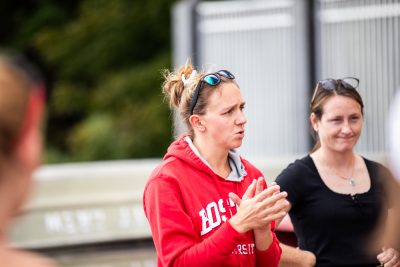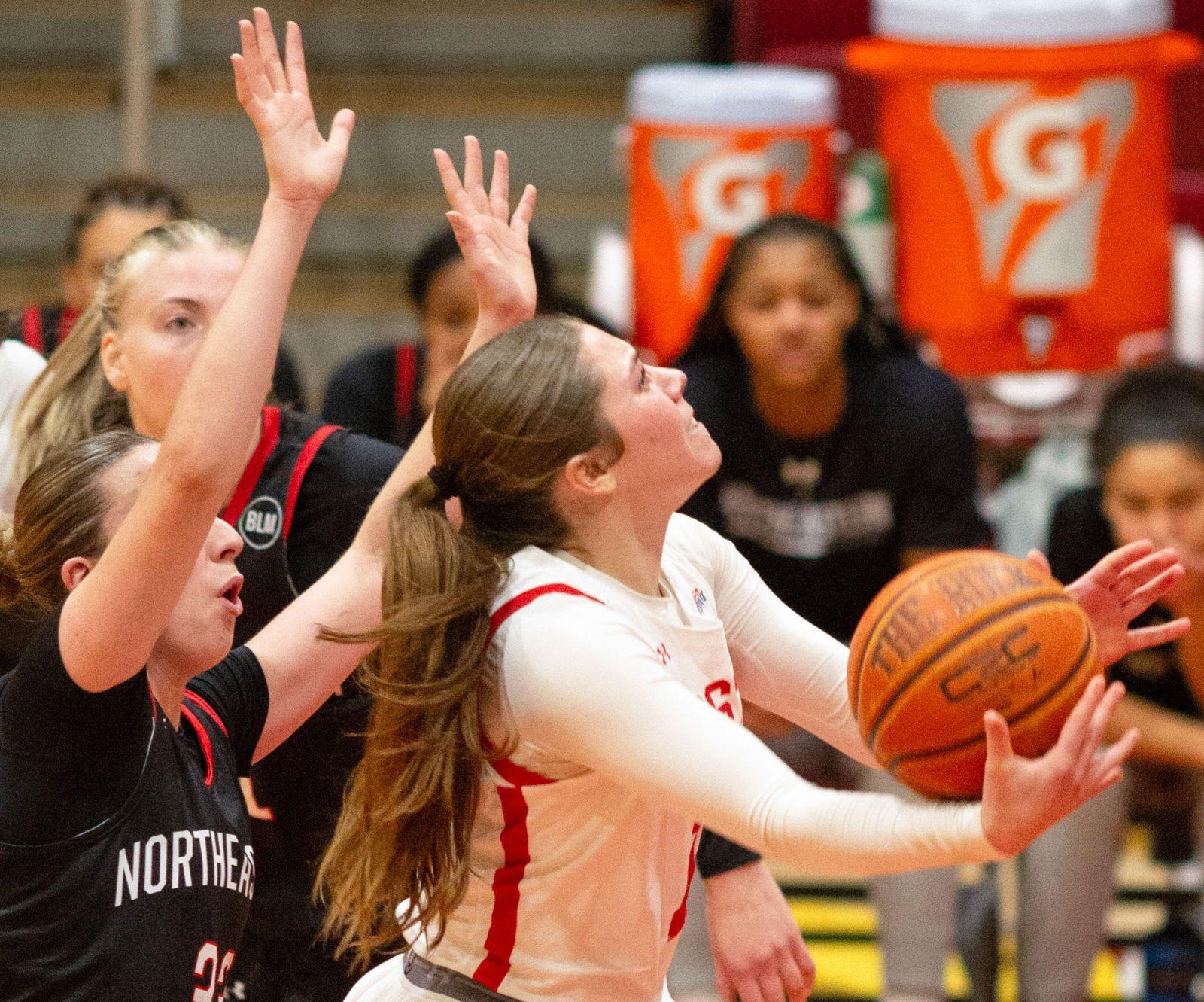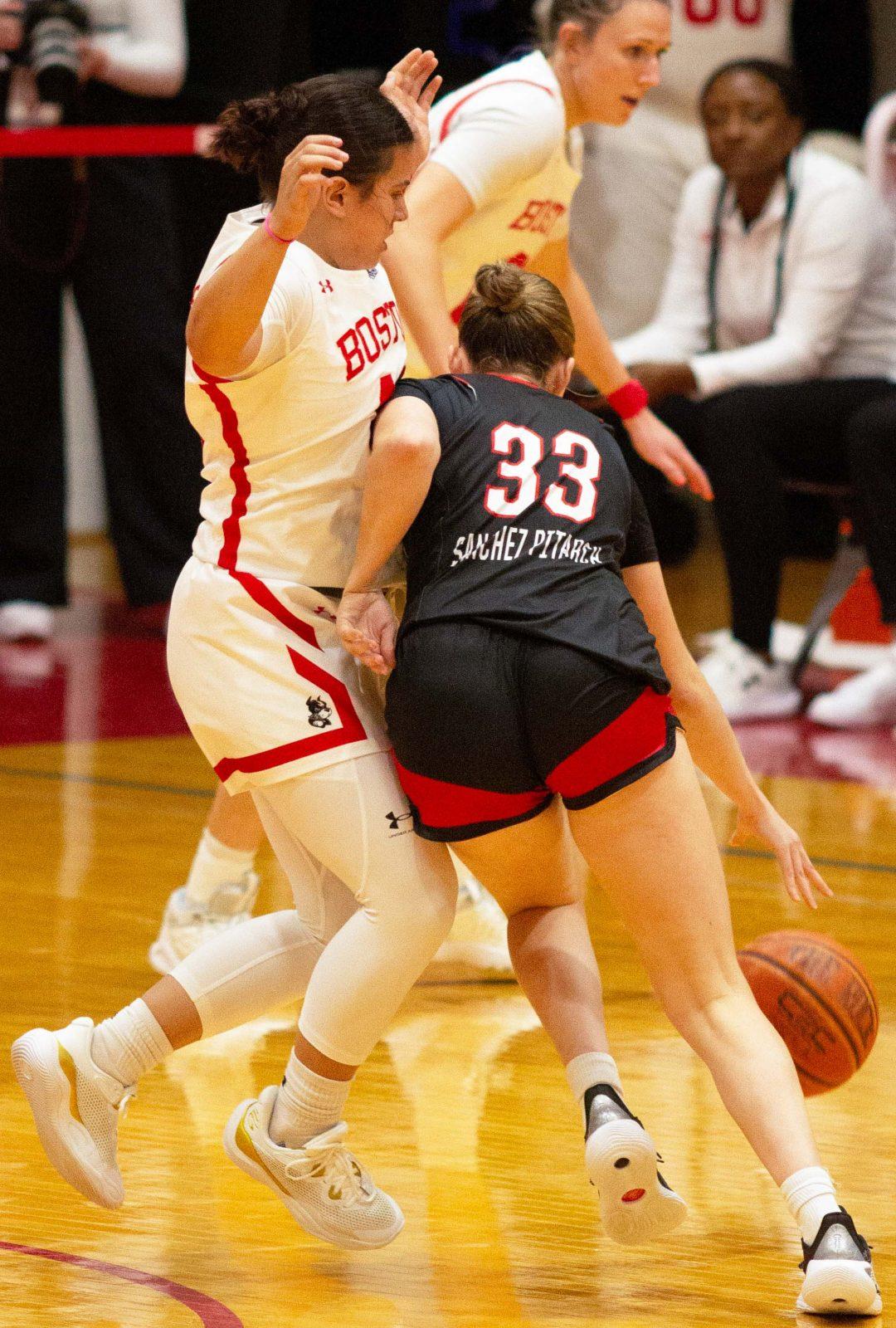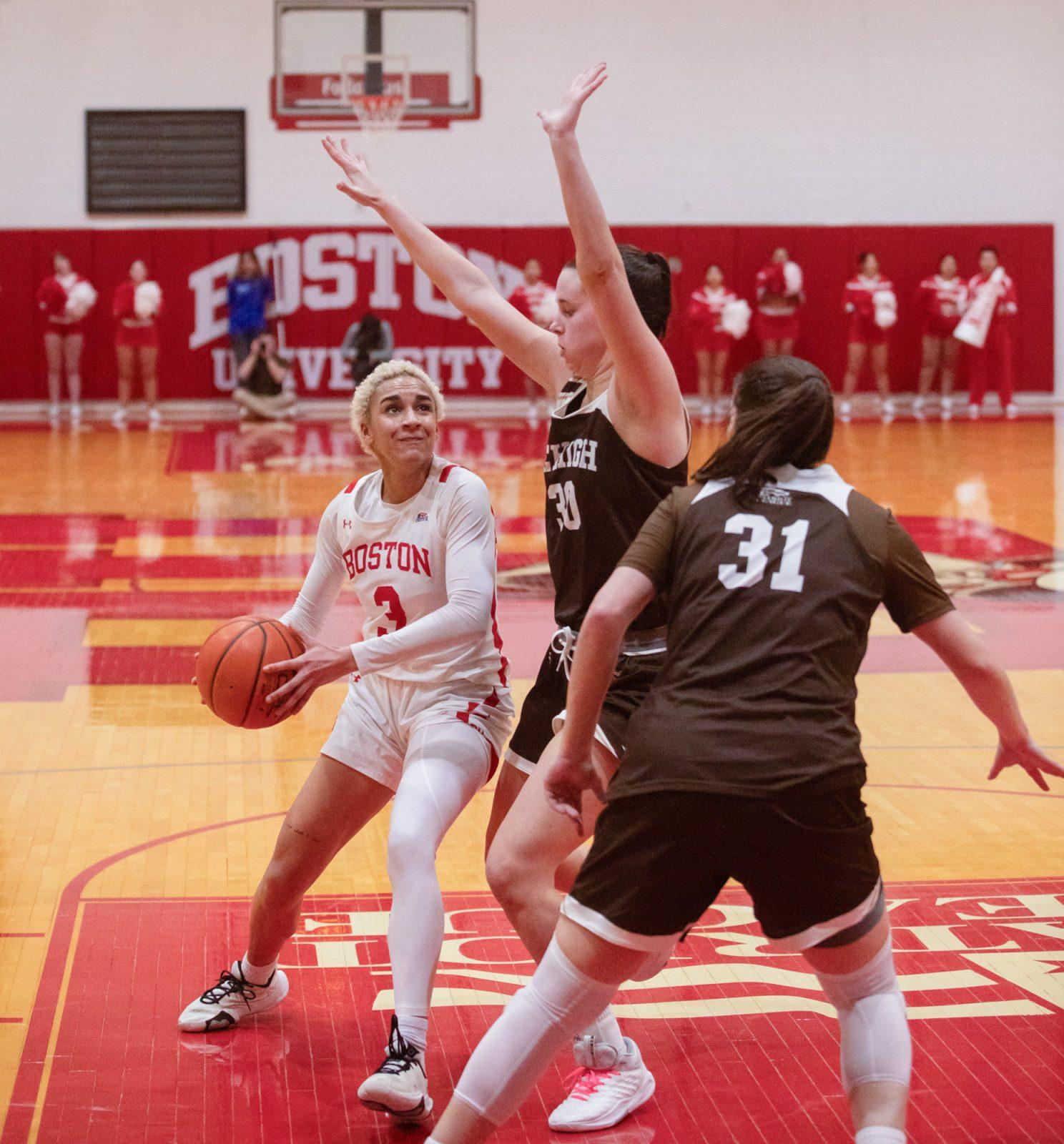Before the start of this season, Mary Foster was named head coach of Boston University’s women’s lightweight rowing team, the second head coach after the program’s 11 seasons at the varsity level.

She succeeds Malcolm Doldron who, since the start of the program, was promoted to director of women’s rowing ahead of the 2023-24 season, creating space for a new face to step into action.
Foster’s appointment is a testament to her deep-rooted experience in collegiate rowing. From her days as the captain of the Loyola Marymount University lightweight team to her role as the assistant coach and recruiting coordinator at the esteemed Harvard-Radcliffe program, she has honed her expertise.
Now, as she takes on the head coaching role, her responsibilities have expanded.
“There’s a mindset shift that happens there of just listening to the head coach and supporting them when you’re an assistant to being in charge and having to think about the big picture, planning out the whole year [and] planning out the long-term success of the team,” Foster said.
Foster’s transition into this new role started off “intense,” starting with training sessions in September, when students were settling into college life. During this adaptation time, she had to make sure her mindset was completely adjusted to her new role.
The whole women’s rowing program finds itself in a period of change, since the openweight team also welcomed a new head coach. Senior lightweight rower Maecy Rickman said the ability to transition is engraved in the team’s culture.
“One of the big themes we have on our team is being adaptable and ready for change,” Rickman said. “Having two new head coaches really encompasses that, and I think, so far, we are doing a great job.”
Foster arrived at BU following five years as the lightweight assistant coach and recruiting coordinator at Radcliffe. During her time there, she was able to develop her philosophy as a coach and learn from others. She explained how, over at Harvard, there are four rowing programs — lightweight and heavyweight men, lightweight and heavyweight women — which she linked to four great coaches to watch.
“It was an advantage to be a part of an athletic department that was so large, and see that there were some challenges with that,” Foster said. “Now at BU, with a much tighter-knit athletic department and a lot of support from the administration, it’s a different experience.”
For her, the key is in examining what worked at Harvard to bring to the team and what at BU needs to be embraced. This idea of collaboration of ideas has been with her since her time at LMU.
Foster helped her team win the Intercollegiate Rowing Association National Championship in 2008. To add to her accolades, she was an All-West Coast Conference First Team selection in her senior year in 2011 at LMU. Her experience as a student athlete shaped her coaching philosophy, but it also taught her a lot about the collegiate experience.
“I did learn a ton while I was training in college about how a team works, and how to support your teammates, and have athletes who have different goals and different abilities really support each other and merge into one team that’s really working for one goal,” Foster said.
For the lightweight team, this meant being led by someone that understood the benefits and difficulties of practicing a collegiate sport.
“Having any sort of coach who has had the student athlete experience is really important,” said senior rower Rayna Kuthiala. “As a student athlete, there’s times where you forget that you’re an athlete, but there’s also times that you forget that you need to be a student… and having a coach who understands and also respects the ‘work hard’ grind that will pay off both academically and athletically [is important].”
The experience of a student athlete is very particular, and it can only be understood by living it. For Foster, it completely shaped her understanding of coaching.
“Part of my coaching philosophy is going with the flow and allowing things to change throughout the course of a year and having the student athletes have the ability to find what’s working for them within the structure of the team and within the goals of the team,” Foster said.
Apart from winning and maintaining the competitiveness the lightweight team has displayed over the last seasons, Foster wants to leave a legacy of lasting relationships.
“Something that’s important is the strong community on our team and how our student athletes support each other and that every member of the team is so involved and so cared for,” Foster said. “That’s unique and also really important for their ability to perform at their best, both on the water, in the classroom and just in life.”














































































































